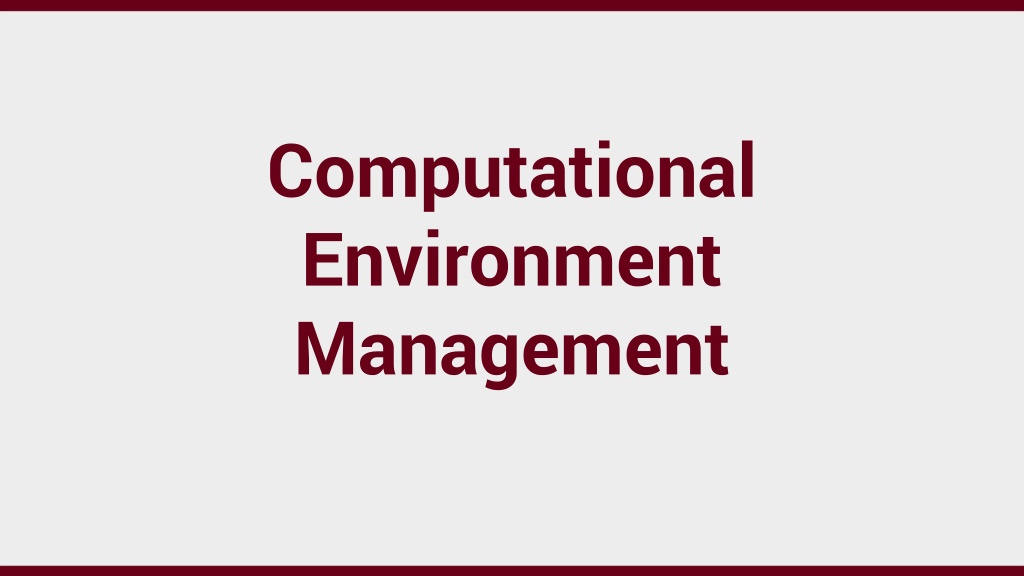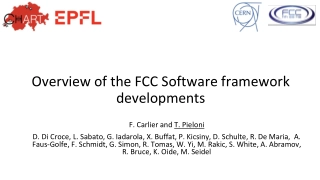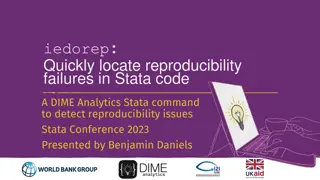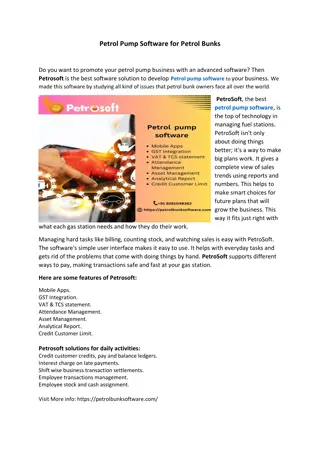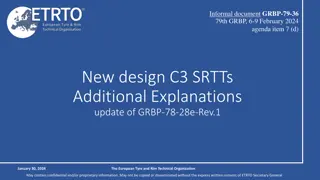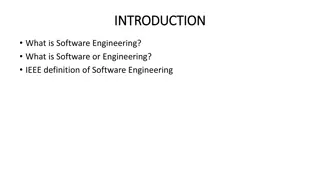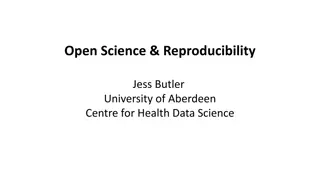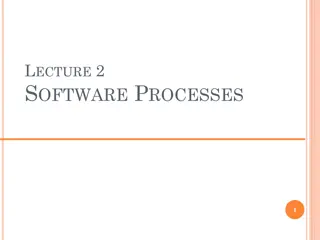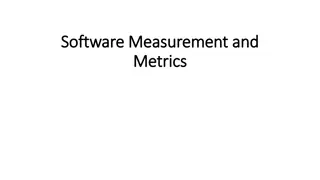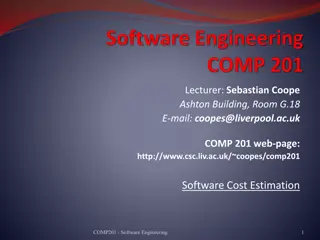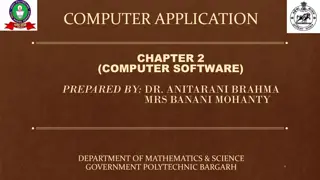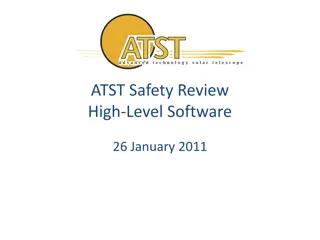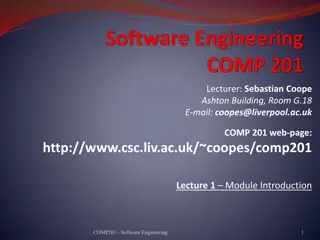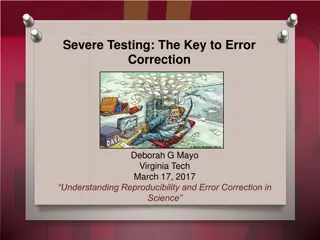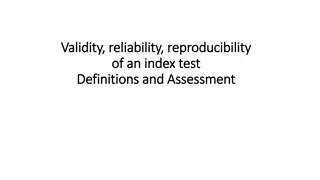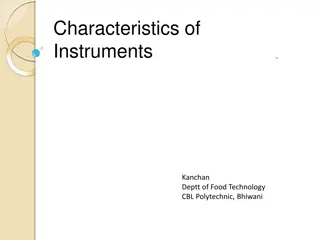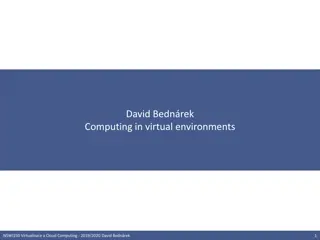Managing Software Environments for Reproducibility
Efficient management of computational environments is crucial to ensure software reproducibility. Learn how to record software environments, use tools like Miniconda and pip for package installation, and manage R packages for reproducible research.
Download Presentation

Please find below an Image/Link to download the presentation.
The content on the website is provided AS IS for your information and personal use only. It may not be sold, licensed, or shared on other websites without obtaining consent from the author. Download presentation by click this link. If you encounter any issues during the download, it is possible that the publisher has removed the file from their server.
E N D
Presentation Transcript
Computational Environment Management
Recording Your Software Environment Software packages have dependencies Software packages have versions Need to: Make software runnable (i.e. install it) Describe software that is installed Ideally, do these things in a way that others can execute to replicate
Suggested Tools miniconda - install non-python packages pip - install python packages R package install script bash scripts - specify and record packages git - track scripts and files github/bitbucket - make git repo public
miniconda https://conda.io/miniconda.html Install miniconda3 (don t use miniconda2!) conda create -n name_of_env [<pkg>...] conda activate name_of_env conda search -c <channel> <pattern> conda install -c <channel> <pkg> e.g. conda install -c bioconda star= conda list --export > conda_packages.txt
pip Command to install python packages Packages listed on pypi.python.org More reliable than installing through conda pip install <package> e.g. pip install pandas Put packages in requirements.txt
R install R notorious for install/version conflict issues Can install R using conda: conda install -c conda-forge r-base=3.6.2 Bioconductor packages: conda install -c bioconda bioconductor- deseq2=1.26.0 Making your R code reproducible is a major pain! Do your best, it s worth it.
R package install When you finally have R installed... Write an R script that contains install calls install.package() calls Bioconductor packages, e.g. source( http://bioconductor.org/biocLite.R ) biocLite( DESeq2 ) E.g. install_r_packages.R
R install script demonstration
Master install script E.g. install_packages.sh bash script that contains software install command(s): conda install commands pip requirements.txt file R script containing package install conda list output to file
Master install script demonstration
Record your work with git git tracks changes to files repositories We have been recording software environment in files! Repos can be cloned - every clone has the complete change history Every change to a file is reversible Very few commands to learn, huge benefits!
github / bitbucket Public web platforms for sharing code Can be made private Easy to share and collaborate Code backup mechanism git isn t efficient at storing big (binary) files Only code! Not for data!
Summary & Recommendations Use: conda install for non-python packages pip for python packages with requirements.txt R script for R packages conda list --export to record pkgs to conda_packages.txt Create bash script that calls all of these at once, e.g. install_packages.sh Check them all into a git repo Push to github/bitbucket Profit
